Judy Heller never thought she'd pick a pomegranate in her life — but in mid-November, she found herself doing exactly that on a farm in Israel, driven by the desire to help the country after the Oct. 7 Hamas attacks, she said.
The New York-based single mother, 37, said when she found out 1,200 people were killed in Israel and more than 240 people were reportedly taken hostage in Gaza, she knew she had to do something. She couldn't just "sit and watch," the war from home, so she asked family and friends to watch her 13-year-old son, organized her work schedule, and got on a plane.
Deborah Chames Cohen was home in Toronto when she got a call from her son Jonathan, who lives in Miami.
"Mom, I really want to go to Israel, they need our help," Cohen, a 66-year-old divorce lawyer, recalled her son saying. Cohen said she was visiting family and friends in Israel during the Oct. 7 attacks and had spent the last few weeks waiting and watching events from afar after she returned home.
But as soon as her 39-year-old son told her he wanted to return to Israel, she knew she had to go with him. She flew to Miami, and on Nov. 20, the pair flew to Israel to pick eggplants and green and red peppers.
Ian Lobell, a therapist in Los Angeles, felt he had to help Israel. For three weeks after the attacks he said he was in shock and "heartbroken," but then he decided to fly to Israel to volunteer. He organized time off work, landed in the country in mid-November, and just started picking vegetables and flowers.
"I was doing things I would have never thought to do — to help people whose farms and industries were suffering," said Lobell.
"The Greatest Crisis"
These volunteers joined hundreds of others from outside Israel — and within — to harvest fruit and vegetables from Israel's farms before the produce rots on the ground. While the strength of Israel's economy lies mostly within its high-tech and diamond industries, agriculture still plays an important role in the country's emotional heart. Part of the country was built on the idea of shared land cultivation and keeping farms healthy, and harvesting is central to its ideals. But with deepening labor shortages due to the war, Israel is figuring out how to keep the industry running.
Israel has blocked Palestinian farm workers from entering since the war began. Between 10,000 and 20,000 Palestinian farm workers from the West Bank are not allowed to enter the country as tensions in that area rise, following the decision made by the Israeli government. Reports of settlers attacking Palestinian farmers as the casualties in the Israel-Hamas war climb have led to a rare rebuke from the United States, which announced travel bans on extremists.
Another labor gap appeared when foreign workers left the country. There were 30,000 foreign workers in Israel before Oct. 7. About 10,000 have left so far, according to a spokesperson from Israel's Ministry of Agriculture and Rural Development, creating a crisis for the agricultural sector.
"Israeli agriculture is in the greatest crisis since the establishment of the state. The main shortage is in working hands that can help Israeli agriculture," Yuval Lipkin, the deputy director general of the Ministry of Agriculture, told CBS News in an email. "Israeli agriculture is a major pillar in the food security of the State of Israel, and hence our role during this period is to ensure fresh, healthy food for all Israeli citizens without external dependence."
Organizations such as Birthright, a not-for-profit dedicated to bringing young Jewish people to Israel, and the Jewish National Fund, which purchases and develops land in Israel, have been organizing volunteer harvest trips. Heller, who traveled on a Birthright trip, was one of the 3,300 alumni who applied to go, the organization said. One thousand volunteers will travel to Israel in December, Birthright said.
Others like Cohen and Lobell use informal groups on social media or connections from friends and family to locate farms that need harvest assistance.
One private group on Facebook has more than 3,000 members that post daily on farms needing help around the country with pleas to pick strawberries, tomatoes and pineapples.
"We are at the peak of the season," one farmer posted on social media, adding that the farm only has three foreign workers left and was looking for eight to 10 workers to help pick fruits in the desert.
Israelis, volunteers from around the globe and even refugees have been responding to the call for help. Sudanese asylum seeker Adam Ahmed Yahya organized a group of African students living in Israel to volunteer and "show their support," he said.
"Weighing war versus wages"
Volunteers, while necessary and hopeful, will not provide a long-term solution for Israel's farm labor shortage. Last month, Israel's Ministry of Agriculture and Rural Development tried to recruit Israelis to work on the farms by promising to pay new workers $780 per month for two months, and $1,000 during the third month. These funds would be in addition to the wage paid by the farmer, the government said.
Israel has turned to numerous other countries to recruit farm workers. The government has approved the entry of 5,000 foreign workers in agriculture as part of a new route, a spokesperson from the ministry of agriculture said.
The workers will be recruited by a private bureau "that has a permit to broker foreign workers to the agriculture sector." Around 650 foreign workers have come to Israel under this new program, the spokesperson said.
Countries have been hesitant to send workers to Israel as officials have said that foreigners are among the Hamas hostages and others who were killed in the Oct. 7 attack.
Thailand reports that at least 23 Thai nationals, mostly agricultural workers, were believed to have been abducted by Hamas, the Associated Press reported. Many more may be missing, and 32 have been reported killed. Several foreign nationals were released during the temporary seven-day cease-fire between Israel and Hamas.
Some countries have heeded the call, motivated by high wages and challenging employment conditions in their home country. Around 220 young people have been sent to work on Israeli farms by Malawi, reported the BBC, causing a backlash against the impoverished African nation's government.
Malawi, which has a high rate of unemployment, said they will send 5,000 more workers to Israel, despite fears the farm hands will be entering a war zone, the BBC reported.
Kenya, which has an unemployment rate of 5.5%, announced it would send 1,500 workers to Israel on three-year contracts, the BBC reported.
The workers will be paid $1,500 a month and be afforded the same protections as Israeli workers, the Israeli government said.
"fruit" - Google News
December 09, 2023 at 09:00PM
https://ift.tt/MuxDOpc
Volunteers flock to Israel to harvest fruit and vegetables as foreign farm workers flee during Israel-Hamas war - CBS News
"fruit" - Google News
https://ift.tt/q9s1kQS
https://ift.tt/6MlfDgk
Bagikan Berita Ini
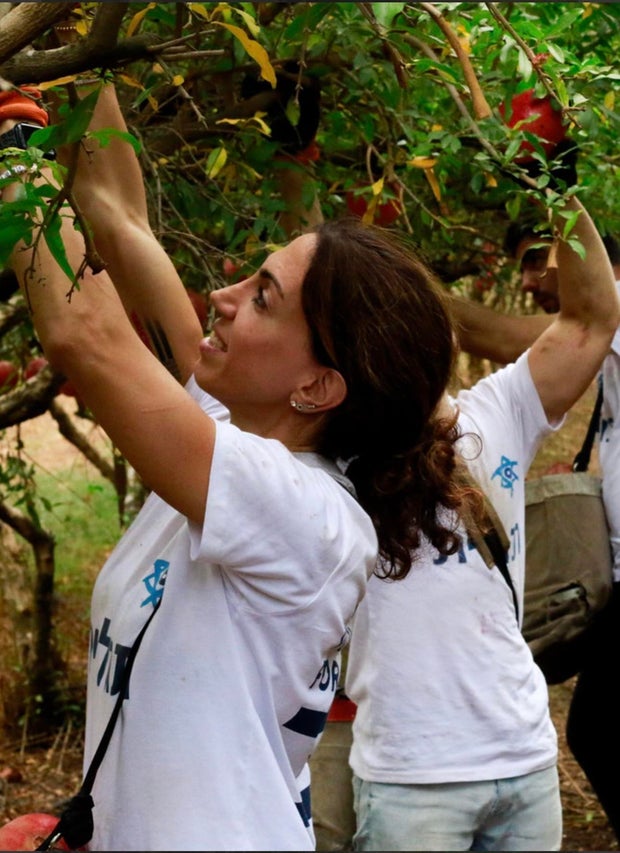
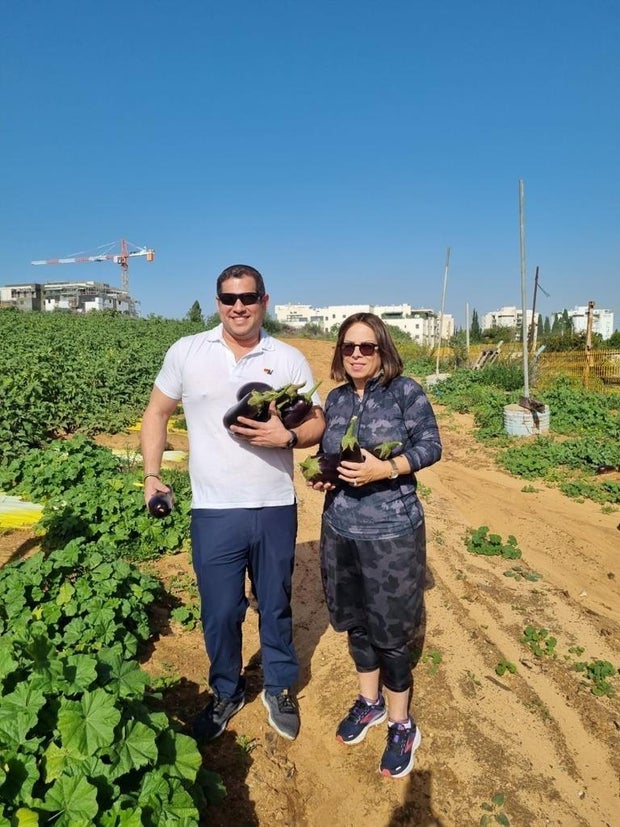
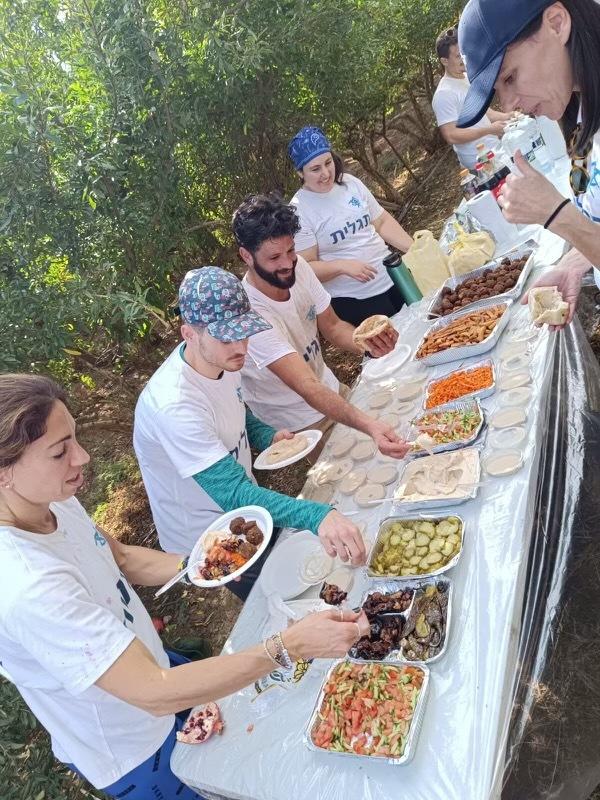
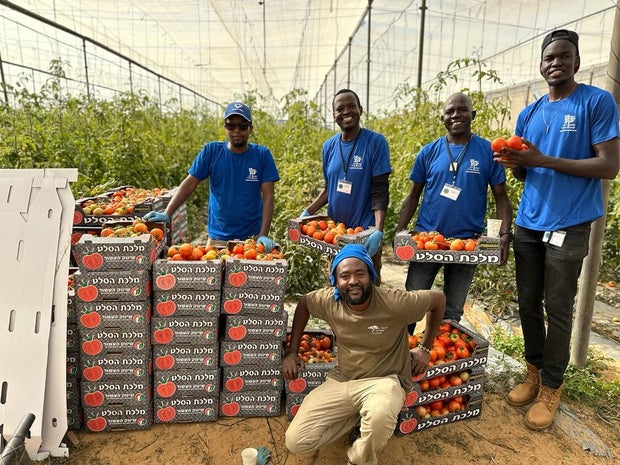
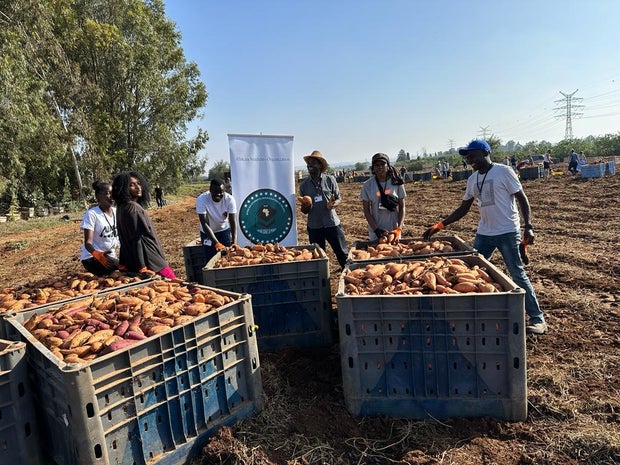














0 Response to "Volunteers flock to Israel to harvest fruit and vegetables as foreign farm workers flee during Israel-Hamas war - CBS News"
Post a Comment